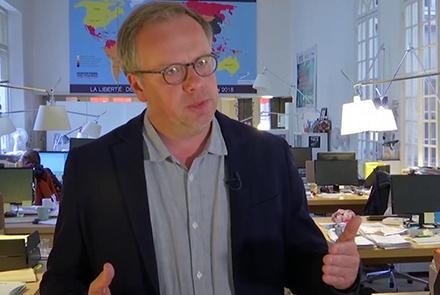Reporters Without Borders (RSF) has described Monday’s suicide bombing against journalists in Kabul as an unprecedented attack on the freedom of press.
The RSF secretary-general Christophe Deloire called on the UN to take steps to protect the lives of journalists in Afghanistan.
“We know that the Afghan government is involved in protecting journalists, but it must continue its efforts to provide security and training,” said Deloir.
He also called on the UN to appoint a Special Representative for the protection of journalists.
“We have formally referred this case to the United Nations secretary-general. It is high time that the UN sends a strong signal to the international community and to local protagonists by appointing a Special Representative for the protection of journalists,” added Deloir.
The RSF has also hailed the courage and determination of the Afghan journalists who dare to work in difficult circumstances.
The RSF termed Monday’s deadly attack in Kabul the second major attack on journalists in Afghanistan since 2016.
“Today’s bombing killed more journalists than any other single attack since the fall of the Taliban government in December 2001. A suicide car bombing in January 2016 targeting a Tolo TV minibus killed seven of the privately-owned TV channel’s employees,” said RSF in a statement.
According to RSF’s tally, a total of 34 journalists and media workers have been killed since the start of 2016 in attacks by Daesh and the Taliban, which are both on RSF’s list of press freedom predators.
Meanwhile, officials from the Committee to Protect Journalists described Monday’s attack on journalists in Kabul as one of deadliest attacks for media in Afghanistan.
"Today marks one of the deadliest days on record for the media in Afghanistan and indeed around the world," said CPJ Asia Program Coordinator Steven Butler in Washington, D.C. "We salute the incredible bravery of these journalists, while noting the cynicism and cruelty of a suicide bomber pretending to be a media worker to target the press."
Before today's attacks, at least 35 journalists were killed in direct relation to their work in Afghanistan since 1992, according to CPJ research. An additional eight media workers have been killed since 2003, when CPJ began formally tracking the deaths of translators, drivers, security guards, and others who play a vital role in newsgathering.
Afghanistan Ranked Second Worst Country For Journalists in 2018.
Afghan Journalist Safety Committee (AJSC) last year announced that Afghanistan is the second worst country in the world for journalists.
Latest news

